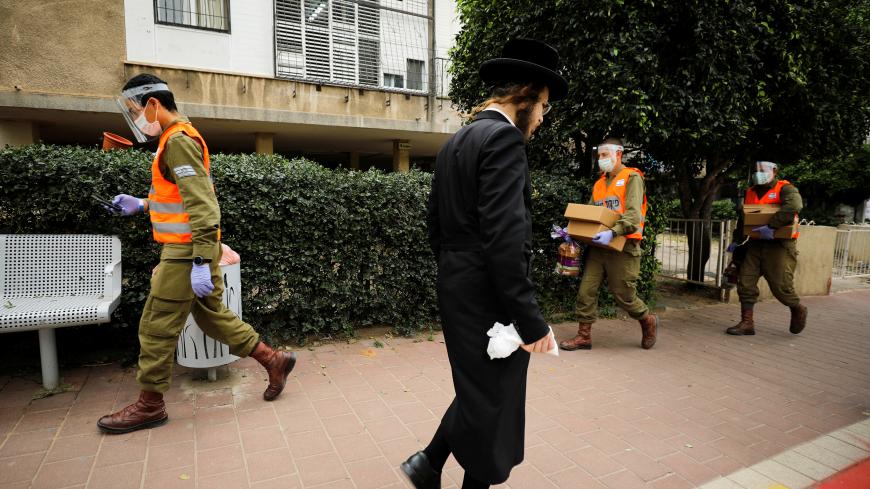It is April 8, Wednesday morning, just hours before the Passover holiday begins. Under normal circumstances, thousands of people in the ultra-Orthodox town of Bnei Brak and the ultra-Orthodox neighborhoods of Jerusalem would gather in local parks and nearby fields to burn whatever leavened products they have left. It is in keeping with ancient Jewish law, which prohibits the eating of any grain-based products in which the dough has had a chance to rise for the entire week of Passover. On this Passover eve, however, military vehicles patrol the city and ultra-Orthodox neighborhoods instead. They are there to collect the hametz (“leavened products”) left by the residents at the entrances to their building. All around them, local residents applaud and heap praises on the troops. These soldiers will be taking the leavened products to be burned, under the guidance of an Israel Defense Forces (IDF) rabbi. In the years before the coronavirus pandemic, no one would have imagined scenes like this even in their wildest dreams.
“There is no way that Israel’s ultra-Orthodox community can go back to what it was before the coronavirus pandemic.” I’ve been hearing this bold assertion from ultra-Orthodox Jews of every type and stripe for the last few days. These include the most conservative groups, who prefer to isolate themselves from Israeli society, but also groups and individuals more involved in Israeli life. The most significant change revolves around their attitudes toward government institutions, with an emphasis on the IDF and its troops. This can be traced to the enormous sense of crisis, given the high percentage of ultra-Orthodox Jews infected with the virus compared with other sectors of Israeli society. The pandemic has challenged old attitudes and beliefs of this self-isolating society.



